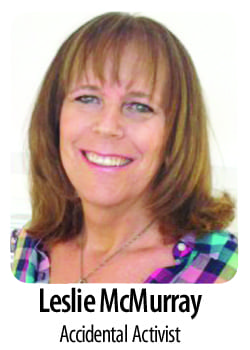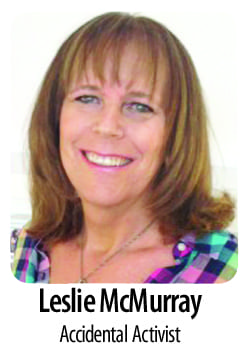TLI2 offered ideas, inspiration and hope
 This past weekend, transgender people from all over Texas — along with parents of transgender kids — met in Dallas for TLI2 (Transgender Leadership Institute 2). It was the second such weekend-long seminar on activism organized by Equality Texas and Freedom For All Americans. The first was held in Houston late last year.
This past weekend, transgender people from all over Texas — along with parents of transgender kids — met in Dallas for TLI2 (Transgender Leadership Institute 2). It was the second such weekend-long seminar on activism organized by Equality Texas and Freedom For All Americans. The first was held in Houston late last year.
In addition to the two organizing groups, there were presentations from Rebecca Kling from the National Center for Transgender Equality and representatives from the ACLU, Transgender Law Center, TransGriot and several other organizations.
There was a “get to know you” reception on Friday night, then on Saturday after an early breakfast, the intensive work began. The workshop challenged us to examine our beliefs and why we do what we do. It offered suggestions on how to do it better and be more effective advocates and leaders in our communities.
Topics ranged from transgender issues to racial justice and immigration, a topic that has been in the news and maybe even on your street.
Rebecca Kling from NCTE spent a good amount of time on helping us craft our stories. It’s not as easy as you might think: Writing just to make yourself feel better is different than writing to make a specific point or to advance a cause. Understanding who you are addressing and what you want them to do are key elements in shaping your story.
The conversation on intersectionality was a spirited discussion. Our group was quite diverse and everyone had a voice.
I was familiar with the word, but not the origin of “intersectionality.” It was coined in 1989 by Kimberle’ Williams Crenshaw, and stemmed from a discrimination lawsuit was filed on behalf of an African-American woman who claimed that African-American women were not being promoted based on their status.
The law said that race and sex could not be combined, so there were two trials. But because the company could show that women were being promoted and that African-American men were being promoted, both cases were defeated.
The fact remained that African-American women were not being promoted but thanks to a technicality, the law at the time provided no recourse.
The value of contact with local, state and federal representatives was emphasized throughout TLI2. Personal contact through office visits, lobbying and testimony is the most powerful, followed by phone calls, letters and finally, e-mail, everyone agreed.
A phrase came up that I hadn’t heard before: “Oppression Olympics” (I hope the IOC doesn’t sue!). This is the idea that we seem to be running a long race against each other to determine who is the most oppressed when it’s really not a contest at all.
The weekend’s discussion also include a really good description of “privilege,” describing it as all of us playing the exact same video game, except each of us is given different tools or weapons within the game that we didn’t earn; they’re just randomly handed out.
If you have an armored tank, the game gets pretty easy. If all you have is a stick, things are much harder. So some people have an advantage not due to differences in skill, but because of unearned resources.
For me, what made this whole experience magical was the presence and participation of parents — partly because it wasn’t expected. My preconceived notion was that it would just be transgender people there. Each of us learned a few new things.
See, the parents who come to events like this wouldn’t be there if they weren’t loving and supportive of their kids. There were a lot of tears as some of the adult trans people described being thrown out of the house or abused by their parents. More than one mom shouted “I’ll adopt you!” Or “I have a guest room.”
I feel like each of us came away with a large adopted family.
I was deeply affected by a mom who worries about her football player son. She is not worried that he can’t handle himself or that he will be injured on the playing field, She worries that in a locker room setting, four or five other players may gang up on him and he won’t be able to fight back effectively.
She worries that he may be sexually assaulted. How many moms of football players have that concern?
Legislators pushing SB6 — the Texas “bathroom bill” — have it backwards: trans kids aren’t the ones the other kids need protection from, trans kids are the ones who need protection.
Now more than ever, action is needed. Facebook posts are fine, but unless the Texas Legislature is on your “friends list,” your message isn’t reaching the right ears.
You have to vote. You have to speak out, and you have to make sure the right people hear you.
You can track bills in the Texas Legislature online at Capitol.State.tx.us. Pay attention to what’s happening in Austin, and show up for committee hearings. Wear purple when you go.
Write letters. Make phone calls. Recruit your friends. Make your voice heard.
Sometimes, it can feel like the whole world is against us. It was so nice to be in a huge room full of people this weekend and feel so much love.
Leslie McMurray, a transgender woman, is a former radio DJ who lives and works in Dallas. Read more of her blogs at lesliemichelle44.wordpress.com.

